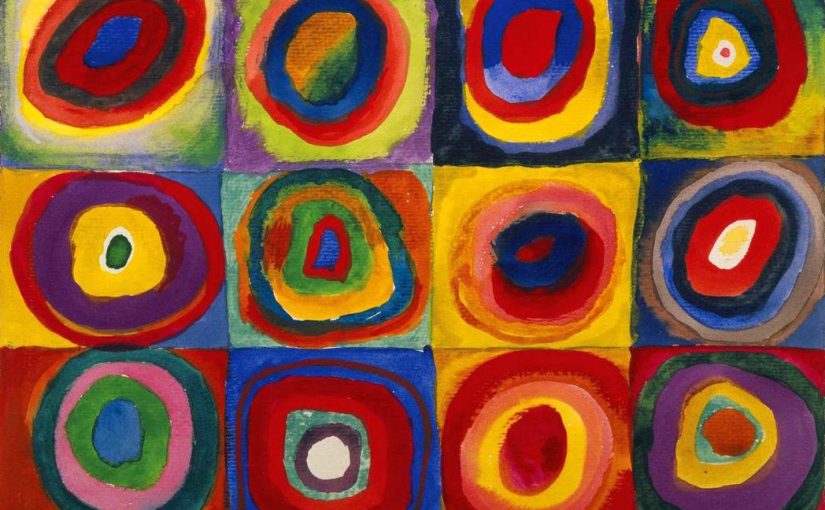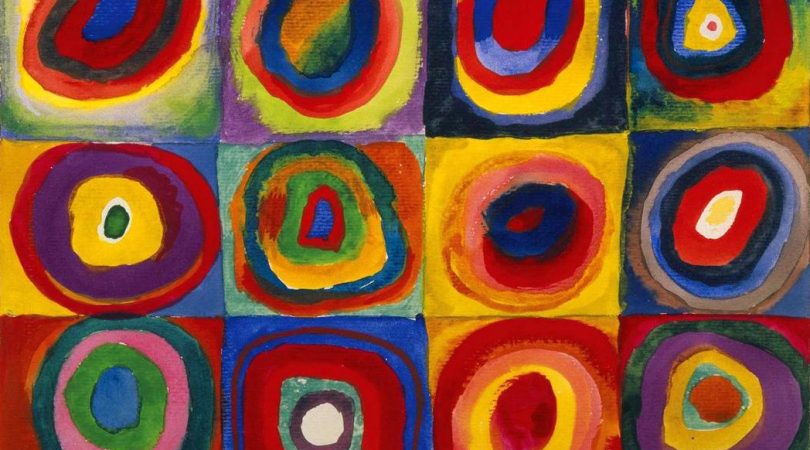Category: Uncategorized
Faith, Science and the Question of Death
TRADITIONS AND MODERNITY
interdisciplinary program with the support
of Aristotle University of Thessaloniki
Invited Speaker
Bogdan Lubardić (Belgrade University, Faculty of Orthodox Theology)
TOPIC:
Faith, Science and the Question of Death:
Retrieving the Philosophical Vision of Nikolai F. Fyodorov
Tuesday January 23 2018, 8pm
Vlatades Monastery
Thessaloniki
Coordinators of the Program
Miltiadis Konstantinou, Professor of Biblical Studies, Dean of the Faculty of Theology, Aristotle University of Thessaloniki
Argyris Nicolaidis, Professor of Theoretical Physics, Aristotle University of Thessaloniki
Abstract and short CV
Faith, Science and the Question of Death:
Retrieving the Philosophical Vision of Nikolai F. Fyodorov (Thessaloniki 23 January 2018)
This paper offers a critical overview of the religious philosophy of Nikolai F. Fyodorov. The thought of Fyodorov may serve helpfully as a model for case study work in regard to two crucial questions: (1) What is the relation between the past and the future? and (2) What is the relation between faith and science? These questions receive their spiritual, theological and philosophical answers through Fyodorov’s idiosyncratic reflection on death. In offering his answers Fyodorov taps into the innermost depths of (‘Orthodox’) Christianity spirituality. Moreover, on one hand he offers a vision which prophetically anticipates the “resurrection of all forefathers by their sons” (viz. Philosophy of the Common Task): this in itself calls for a radical revision of humanity’s guiding ethical principles (viz. Supramoralism). On the other hand, he expounds visionary proposals for the role science has to play precisely within the project of resurrecting the deceased and restoring free conscious life to all being (viz. Regulation). Fyodorov is rightly acclaimed as one of the pioneering anticipators of climatology, rocket and space astronautics, cryonics, genetic engineering (body re-design); also, he is endorsed as the forerunner of immortalism and transhumanism. His thought is radical, maximalist and limital. As well, it is informed by the purity of sainthood. Inasmuch his astounding philosophical vision may help us re-examine our own understanding of the relation of the past to the future, as well as the relation of faith to science, and, to re-address the predicament of dying. For the same reason it allows us to re-examine and criticize some neuralgic points of Fyodorov’s proposals.
Keywords: God, mankind, image and likeness, personhood, primordial sin, death, faith, science, resurrection, the Common Task, supramoralism, regulation
Curriculum vitae (academically conceptualized)

Bogdan Lubardić (Dar es Salaam, Tanzania 1964) is assistant professor of Philosophy in the Faculty of Orthodox Theology at Belgrade University. His academic research interests include reflection on the relation of religious philosophy and Christian theology, as well as the relation of both of these towards self-referential naturalistically conceived philosophy; reflection on the reception process of philosophical concepts in theology; reflection on the epistemological status of religious propositions; case study work in the history of ideas in religious philosophy and theology (with special interest in Byzantine, Russian and Serbian religious philosophy and theology); thematization of ideas and models of thought in Church doctrine. His work also explores the ways in which theological texts or statements can be re-problematized, heremenutically and critically, as well as the ways in which they are received, functionalized ecclesially, and grounded. His publications include Philosophy of Faith: Lev Shestov and the Apophatic Deconstruction of Reason (2010); Justin of Ćelije and Russia: The Ways of Reception of Russian Philosophy and Theology (2009); and Nikolai Berdyaev: Between the Ungrund and the Father (2003). He is member of the International Commission for Anglican-Orthodox Theological Dialogue (ICAOTD). In this capacity he is one of the co-authors of the latest Commission’s publication: In the Image and Likeness of God: A Hope–Filled Anthropology (The Buffalo Statement Agreed by the ICAOTD), London 2015. He is also a regular member of the Executive Board of the Serbian Philosophical Society (SFD). He has given papers and addresses at the Lateran University (Rome 2003), Yale Divinity School Institute of Sacred Music (New Haven 2007), Christ Church (Oxford 2010) and the University of California, Berkeley (S. Francisco 2013). He holds B.A. Phil., M.Th. and D.Phil. degrees.
Address: Univerzitet u Beogradu, Pravoslavni bogoslovski fakultet, Mije Kovačevića 11b, 11060 Beograd SERBIA
Within the program “Traditions and Modernity”, professor Bogdan Lubardic (Belgrade University) gave a talk on “Faith, Science and the Question of Death”. The pictures show the speaker surrounded by the event organizers, Argyris Nicolaidis, professor of Theoretical Physics, AUTh, and professor Miltiadis Konstantinou, Dean of the Faculty of Theology, AUTh and professor of Biblical Studies.
PRESS

From the media response, read the interviews of Paul Ballanfat
- Editors Journal http://www.efsyn.gr/arthro/i-dianoisi-prepei-na-parameinei-makria-apo-kathe-politiki-desmeysi
- Athenian-Macedonian News Agency http://www.amna.gr/article-pagination.php?id=160888
- THESSNEWS newspaper http://www.thessnews.gr/article/39516/o-gallos-filosofos-pol-antre-mpalanfa-stin-thessnews-den-eimai-dianooumenos-kai-den-thelo-na-eimai%E2%80%A6-
- THINKFREΕ Magazine http://www.thinkfree.gr/ballanfat-politics-megaro-mousikis-auth/?doing_wp_cron=1507285645.9013020992279052734375
See photos on Facebook: https://www.facebook.com/photo.php?fbid=1240683939373950&set=pcb.1240684592707218&type=3&theater
THE CRISIS OF MODERNITY

TRADITIONS AND MODERNITY
interdisciplinary program with the support
of Aristotle University of Thessaloniki
Invited Speaker
Paul Ballanfat (Galata University, Istanbul)
TOPIC: THE CRISIS OF MODERNITY
After the speech and the discussion, we will listen to modern musical compositions in piano
of Claude Debussy, Lina Tonia, Dimitri Terzakis and Laércio de Freitas.
There will be a live streaming of the event through DIAVLOS.
Thursday June 8 2017, 8pm
Aimilios Riadis Auditorium
Thessaloniki Concert Hall
Coordinators of the Program
Miltiadis Konstantinou, Professor of Biblical Studies, Dean of the Faculty of Theology, Aristotle University of Thessaloniki
Argyris Nicolaidis, Professor of Theoretical Physics, Aristotle University of Thessaloniki
The webage is inspired by Wassily Kandinsky’s work: Squares with Concentric Circles (1913). For Kandinsky color meant more than an optical element of a picture. Color is the soul of a painting. Furthermore Kandinsky had synesthetic experiences. He could “listen” to colors and “see” sounds.
Abstract and short CV
The speaker starts from the roots, the ancient Greek thinking, crosses the European philosophy, follows the genealogy of ideas, and indicates the points of crisis and the deadlocks. The separation of politics from meta-physical and ethical considerations, the domination of technology over nature and human life, the political messianisms which led humanity to the known tragedies of the 20th century.
We don’t have a narrative of the given present, and according to Nietzsche, nihilism is lurking.
Paul Ballanfat, born in 1960 in France, studied philosophy at the Universities of Lyon and Strasbourg and obtained his doctorate at the University Paris III (Sorbonne Nouvelle) on Eastern Languages and Civilization. From 2009 he is Professor of Philosophy at the Galata University, a renown French speaking educational institute in Istanbul.
There was a broad coverage of the event by the media, with interviews to journals and national TV channel ET3.
From the media response, read the interviews of Paul Ballanfat
- Editors Journal http://www.efsyn.gr/arthro/i-dianoisi-prepei-na-parameinei-makria-apo-kathe-politiki-desmeysi
- Athenian-Macedonian News Agency http://www.amna.gr/article-pagination.php?id=160888
- THESSNEWS newspaper http://www.thessnews.gr/article/39516/o-gallos-filosofos-pol-antre-mpalanfa-stin-thessnews-den-eimai-dianooumenos-kai-den-thelo-na-eimai%E2%80%A6-
- THINKFREΕ Magazine http://www.thinkfree.gr/ballanfat-politics-megaro-mousikis-auth/?doing_wp_cron=1507285645.9013020992279052734375
See more Pictures of the event here
EROS AND AGAPE

TRADITIONS AND MODERNITY
interdisciplinary program with the support
of Aristotle University of Thessaloniki
Vasilis Kalfas (Faculty of Philosophy, Aristotle University of Thessaloniki)
Eros in Plato
Chrysostome Stamoulis (Faculty of Theology, Aristotle University of Thessaloniki)
“We should not afraid naming eros”
Introductory comments on the agape and eros teachings of the Orthodox Church
Friday November 25 2016, 7pm
Amphitheater “Melina Merkouri”
Museum of Byzantine Culture
Miltiadis Konstantinou, Professor of Biblical Studies, Dean of the Faculty of Theology, Aristotle University of Thessaloniki
Argyris Nicolaidis, Professor of Theoretical Physics, Aristotle University of Thessaloniki
The project “Traditions and Modernity” aims to feature the Orthodox Christian Tradition as a frame of reference in order to face the challenges of the modern era. We should consider that the eastern orthodox tradition incorporates the sensible, the experience, logic and analysis, but also opens up new horizons by looking for the transcendent, the point where the “stated and the unstated” are entangled.
The webpage is inspired by Wassily Kandinsky’s work: Squares with Concentric Circles (1913). For Kandinsky colour meant more than an optical element of a picture. Color is the soul of a painting. Furthermore, Kandinsky had synesthetic experiences. He could “listen” to colours and “see” sounds.
Vasilis Kalfas
A search for the significance of eros in ancient Greece, from Hesiod to Empedocles and Plato. The importance of eros in Platonic philosophy
Vasilis Kalfas is professor of ancient Greek philosophy at the Aristotle University of Thessaloniki. He is scientific responsible for the translation of Aristotle’s collected works (editions Nisos, with the support of the Stavros Niarchos Foundation) and the digital encyclopedia “Plato”. He directs the “Platonic Dialogues” (editions Estia).
Chrysostome Stamoulis
It appears that it is time to dig and find below the earth the true Church and the forgotten face of Orthodox theology. In this effort, we should start from the eternal issues of eros and agape, which in their dialogue with the mystery of death, define the contents of a civilization.
Chrysostome Stamoulis is professor of dogmatic and symbolic theology at the Aristotle University of Thessaloniki. He studied at the Universities of Thessaloniki, Belgrade, Durham. He taught as a visiting professor at the St John of Damascus Institute of Theology (University of Balamand, Lebanon) and the Greek Orthodox School of Theology(Hellenic College Holy Cross, Boston).

